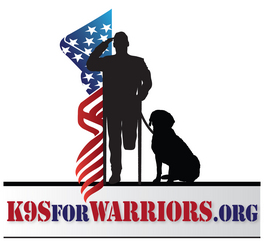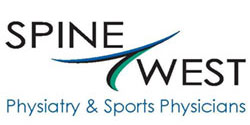Florida
Florida Channel 1 is a hub for all the cities we featured in the state of Florida, U.S.A.

St. Augustine Mobility Institute starts Monday
Sep 16th
corridors: King Street, San Marco Avenue, and Anastasia Boulevard
Moving to and through St. Augustine, whether in a personal or commercial vehicle, is a challenge. The city’s compact historical district’s small, narrow streets draw millions each year, and when volume meets capacity, there can be gridlock.
and when volume meets capacity, there can be gridlock.
In recent years there have been many studies by governmental and private entities evaluating the existing traffic systems and proposing ways to increase efficiently and the ease of moving around St. Augustine. Some studies focused just on street use, others on pedestrians and bicycles, still others on light rail and shuttle services, but there has not been one with the complete, overall view that is likely to result from the St. Augustine Mobility Institute.
Running September 17- 21, the Institute is a weeklong intensive effort to learn about mobility challenges along the city’s three entrance corridors – King Street, San Marco Avenue, and Anastasia Boulevard – and the by week’s end propose solutions based on input from a series of public workshops.
The Institute, a partnership between the City of St. Augustine and the North Florida Transportation Planning Organization,(NFTPO) will be managed by the engineering consultation firm of HNTB. It was City Commissioner Nancy Sikes-Kline who, as a member of the NFTPO, became aware of the program and the with the help of the city’s Planning and Building Department was able to secure an allocation of $125,000 to cover the cost of the study.
The week opens with a kick off meeting on Monday afternoon, September 17, in The Alcazar Room to allow stakeholders an opportunity to provide input on the needs and issues to be addressed. Then on Tuesday, Wednesday and Thursday, public workshops will be held in the neighborhoods of the three entrance corridors: King Street, San Marco Avenue, and Anastasia Boulevard. Finally, on Friday a wrap up session will again be held in The Alcazar Room bringing together the results and recommendations.
The Institute will focus on strategies with the potential of enhancing mobility within St. Augustine specifically addressing:
• Traffic and congestion management
• Cyclists and pedestrians
• Transit
• Multimodal transportation center
• Private transit and tour vehicles
• Wayfinding
• Parking
• Business access
• Economic development
A Participant’s Handbook, (available online at www.staugustinegovernment.com) is a rich resource book with maps and summaries of a number of transportation plans and proposals already completed. The handbook will be a necessary tool for anyone interesting in participating in the Institute.
This is a unique opportunity to have input on the shape of the city’s transportation future. All meetings are open to the public. Please note that two or more members of the St. Augustine City Commission may be in attendance at one or more of these meetings.
For additional information, contact: Mark Knight, Planning and Building Director , City of St. Augustine, Phn: 904.825.1065, Email: mknight@citystaug.com.
St. Augustine Mobility Institute Meeting Schedule
Kickoff meeting / Monday September 17, 2:00pm – 3:00pm
The Alcazar Room, St. Augustine City Hall, 75 King Street
King Street Corridor meeting / Tuesday September 18, 5:00pm – 6:00pm
(regarding King Street between Granada Street and Palmer Street)
The Alcazar Room, St. Augustine City Hall, 75 King Street
San Marco Avenue Corridor meeting / Wednesday September 19, 5:00pm – 6:00pm
(regarding San Marco Avenue between Castillo Drive and US 1)
Florida School for the Deaf and Blind, Moore CLD Room (use Macaris Street entrance), 207 N. San Marco Avenue
Anastasia Boulevard Corridor meeting / Thursday September 20, 5:00pm-6:00pm
(regarding Anastasia Boulevard from the Bridge of Lions to Spartina Avenue)
St. Augustine Alligator Farm and Zoological Park, Anastasia Island Conservation Center, 999 Anastasia Boulevard
Wrap-Up meeting / Friday September 21, 2:00pm-3:00pm
The Alcazar Room, St. Augustine City Hall, 75 King Street
Public participation is solicited without regard to race, color, national origin, age, sex, religion, disability or family status. For complaints, questions or concerns about civil rights or non-discrimination, or for special requests under the Americans with Disabilities Act, please contact Mark Knight, Planning and Building Department, 904.825.1065.
Source: City of St. Augustine

St. Augustine Channel 1 was not available last week
Sep 16th
All Internet services have been restored and St. Augustine Channel 1 continues now as it was before.
Thank you, loyal readers, for your understanding.

Jaeckle, K9s for Warriors help veterans with PTSD
Sep 16th

Now Flagler College assistant professor Tina Jaeckle and a group called K9s for Warriors are trying a different approach in the form of man’s best friend.
“When you come home, your dog knows when you’ve had a bad day,” said Jaeckle, who serves on the board of the Ponte Vedra Beach-based organization. “They want to get up in your lap. They want to cuddle. Dogs do that naturally. They’re much more sensitive to these things than humans.”
According to Jaeckle, who teaches sociology at Flagler, it’s that sensitivity to feelings such as fear and anxiety that make them perfect compliments to combat veterans suffering from PTSD.
According to a study by the Rand Corporation, one in five returning veterans suffers from Post-Traumatic Stress Disorder. One in six will attempt or commit suicide. Symptoms can include hostility, aggression, depression, suicide, paranoia, acrophobia, nightmares, panic attacks, poor coping skills, memory loss and lack of trust.
“My background as a clinical social worker has always been in crisis and trauma. It’s something I educate law enforcement on and first responders,” said Jaeckle. “Right now, (PTSD) is an epidemic and if we don’t figure out better ways to deal with this, we’ll have no idea what to do when all these folks come back home.”
In the K9s for Warriors program, service dogs, which are rescues from local shelters, are trained together with their matched veteran to establish a deep bond that will enable the dog to be able to sense when its owner is in danger.
Three to five veterans at any given time are put up at the facility for a three-week training program where the “warrior” learns the skills needed to train their own canines. The group provides a service canine, training, certification, equipment, seminars, vet care, most meals and housing free of charge.
Service dogs at the facility are trained to respond to these dangers by performing tasks to lessen the distress. Examples of these tasks include pawing or bringing a toy to break a disturbing episode, blocking an unwanted person from advancing too close, reminding the warrior to take medicine or nudging the warrior while thrashing due to a nightmare. Each warrior has differing symptoms, so his or her service dog is trained for his or her specific disabilities.
Sandi Capra serves as director of development for the K9s program, but her connection runs much deeper than that. Her husband graduated from the program in November of 2011.
“This program allows (veterans) to live a more normal life. They can go to shops, restaurants, movies, everyday things you and I take for granted they are no longer able to do due to the overwhelming symptoms of PTSD,” said Capra. “They start to interact with the public and relearn to trust and can become productive members of society once again.”
And since the group’s services are provided free of charge, financial help and volunteers are always needed.
“The cost to feed the warriors while they are in residence and the cost of dog supplies are a large expense for K9s,” said Capra. “Financial help is always appreciated.”
And the local facility and need for volunteers is a fact that Jaeckle says has played well with her students, who have had visits from several veterans who have graduated the program.
“I think there are numerous opportunities for students in sociology and psychology to study PTSD as well as a huge opportunity to help veterans,” said Jaeckle. “We’re talking about current and future trends in psychology and sociology that students can take with them to graduate school.”
For more information on K9s for warriors or to find out how you can help, visit k9sforwarriors.org
Source: Flagler College





















